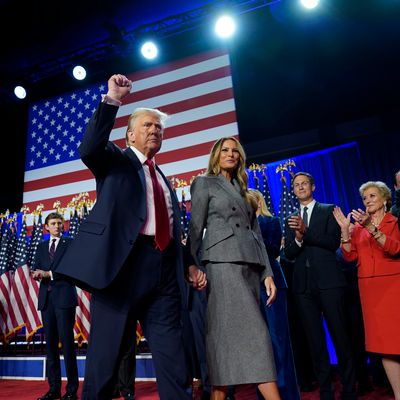
In January, President-elect Donald Trump will return to the White House backed by an electoral win more substantial than his first in 2016. Trump will also be bolstered by a likely Republican-controlled Congress as well as a strongly conservative majority in the U.S. Supreme Court. A second Trump presidency will be a marked difference from the outgoing Biden-Harris administration, and the contrast will be strongly felt in New York City.
Throughout his presidential bid, Trump campaigned heavily on the southern border, blanketing airwaves with ads tying Vice-President Kamala Harris to an influx of illegal immigration and highlighting incidents of violent crimes committed by migrants. He has vowed to conduct mass deportations of illegal immigrants on Day One and had previously urged Congress to pass legislation banning sanctuary cities, a status New York City presently holds.
Over the past few years, immigration quickly emerged as a top issue in New York City and nearby. House races on Long Island, which are closer to the country’s northern border than its southern one, featured ads specifically on ending the migrant crisis in the state.
Mayor Eric Adams, who was frequently at odds with the Biden administration over its handling of the migrant crisis, expressed an openness to working with the Trump White House on the issue. “We also intend to protect our immigrant communities, and we will work with the new administration in Congress to develop a realistic and compassionate national strategy for our immigration system. This includes pushing Congress to provide expedited authorization for asylum seekers who desire to work and they are already here,” he said Wednesday.
On Thursday, Adams said he had spoken to Trump following his win but declined to say whether the subject of immigration or his proposed mass deportations came up. “I’m not going to go into private conversations,” he said.
A second Trump term likely does not bode well for the future of congestion pricing in the city. Earlier this summer, Governor Kathy Hochul announced that she had ordered the MTA to pause the implementation of congestion pricing just weeks before it was set to go into effect. The governor, who was once a strong supporter of the program to require a toll for drivers traveling below 60th Street, said the planned $15 fee would be a burden on New Yorkers. In the months since, Hochul has suggested that the pause is temporary and that her administration is looking at fixes. But as the end of the year approaches, there has been no additional movement on the program.
Trump has made his feelings on congestion pricing well known. In a Truth Social post from May, he called the program a disaster, writing, “I will TERMINATE Congestion Pricing in my FIRST WEEK back in Office!!!” Congestion pricing’s future in the city likely depends on whether Hochul will move to implement it before Trump takes office. Advocates for the toll believe it would be harder to wind back the program once in place. Curbed reports that Trump will probably attempt to stop federal funding for it, following the trend from his first term when he held up or halted similar transit projects. Politico reported Friday that Hochul has inquired with the Department of Transportation about the possibility of lowering the proposed toll, suggesting some potential movement on the issue.
In remarks following Trump’s win, Hochul did not mention congestion pricing by name but indicated some transit projects and other issues she hopes Trump will address once in office. “President-elect Trump needs to repeal his elimination of the state and local tax deduction. He also needs to support our ongoing efforts to support our transit, support the Gateway Tunnel, Second Avenue Subway, and fund major critical infrastructure — again, particularly the MTA — and also to back our critical economic-development projects, such as those funded by the CHIPS and Science Act, which is intended to bring manufacturing back home from China and South Asia and create thousands of jobs in our state, as is occurring with Micron,” she said.
The governor referenced the state and local tax deduction, also known as SALT, a key issue for state politicians and residents alike. In 2017, Trump instituted a $10,000 cap on the deduction as part of his signature tax-cut package, a move that remained unpopular even among his supporters. Ahead of a September visit to Long Island, Trump suggested he was open to reversing the change. The announcement prompted praise from Congressman Mike Lawler who called the idea a “top priority” of his since entering office, while Majority Leader Chuck Schumer said Trump’s flipping on the issue amounted to “selective amnesia.”
Both Adams and Hochul made a point of assuring New Yorkers that a Republican-led government would have no impact on their ability to access reproductive care or the rights of the LGBTQ+ community. Throughout the election cycle, Democrats hammered Trump for his appointment of three Supreme Court justices who later went on to overturn Roe v. Wade.
“I will work with him or anybody, regardless of party, on these kinds of efforts that I know will benefit the State of New York. However, if you try to harm New Yorkers or roll back their rights, I will fight you every step of the way. New Yorkers are resilient — we fought the first time around, and we’ll fight again,” Hochul said.






























